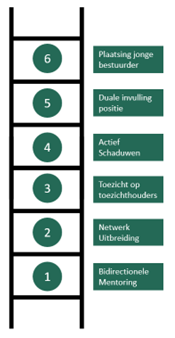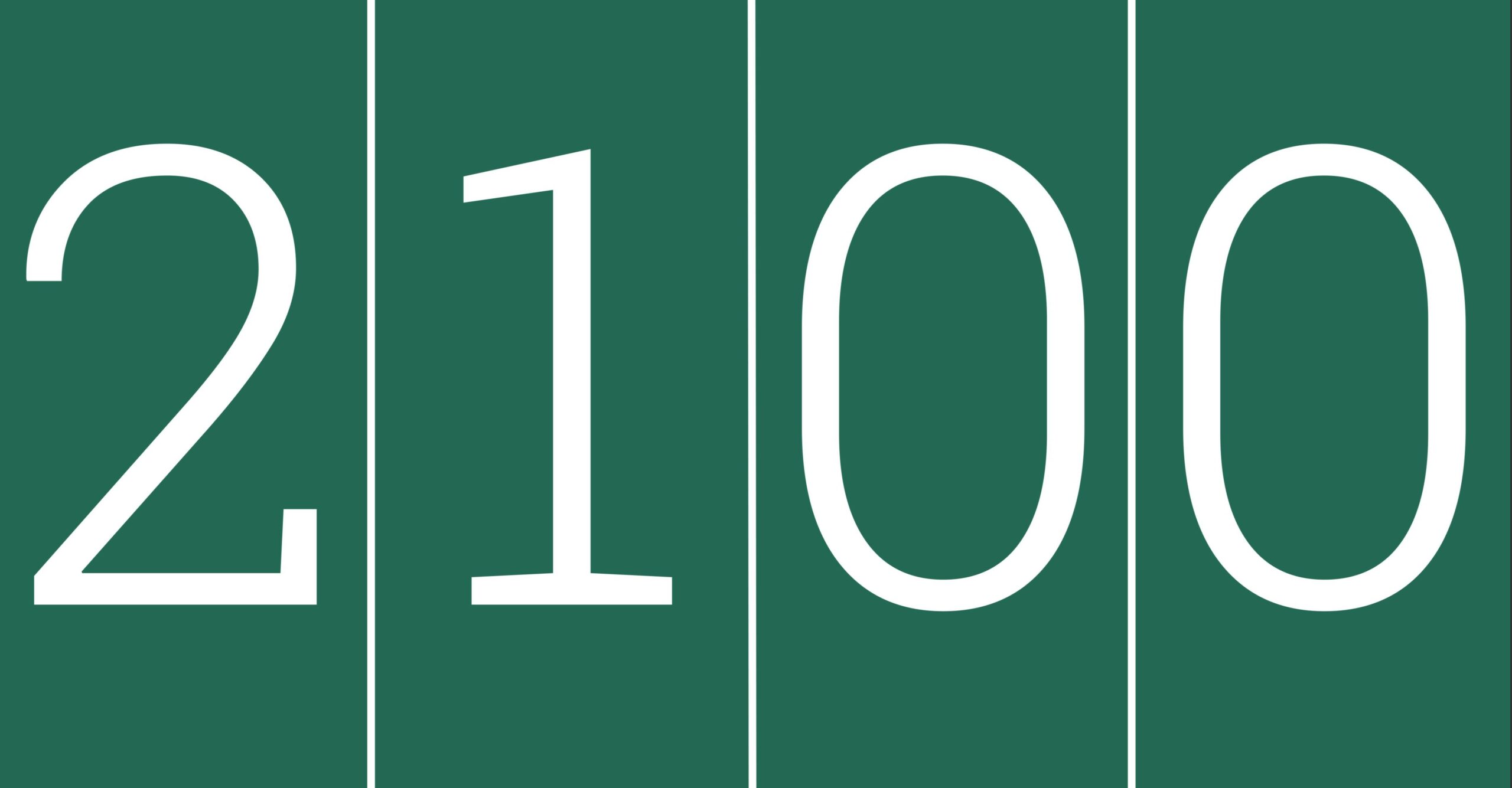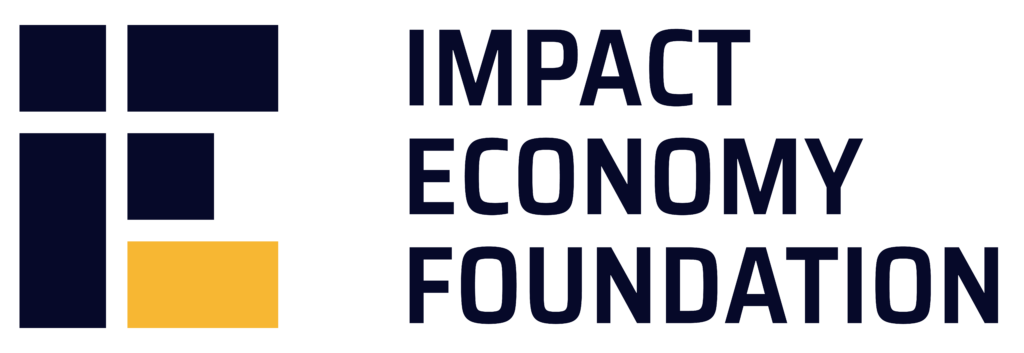2100 Starter Pack
Get started with 2100!
Starter Pack
Building the 22nd century
Network 2100 builds a movement of current and aspiring leaders who collectively strive to make impact a top priority in every boardroom, in the Netherlands and beyond! To make the movement as large as possible, we have developed an online starter pack for everyone who wants to get started with steering towards impact for 2100. In this starter pack, we guide you through the mindset, tools, and actions we need to take to ensure we build an impact economy where work, innovation, and entrepreneurship contribute to solving our societal challenges and creating broad prosperity for everyone.
Who are the people who have preceded you, and for whom are we doing this? First, watch this video, because we make an impact together.
Part 1: The Necessity
Video's
Must reads
We are confronted with a toxic mix of societal challenges. The consequences of endlessly shifting costs onto society are becoming increasingly palpable and significant. In the video, Werner guides you through the key topics and draws attention to the challenges of the current market economy and why the current approach no longer works. He then explains which direction will indeed have an impact, namely the impact economy.
Video 2 - The Necessity
Video 3 - Over 2100
Get started! – Reflection questions
Explore your motivations and ambitions and connect them with 2100 so they can strengthen each other. It is essential to take a long-term perspective on your career. We often overestimate what we can achieve in the short term, but underestimate what we can achieve individually and as a movement in the long term. Therefore, 2100’ers focus on purposeful work within their careers.
You could view your career as blocks of one week each. Until 2100, you have more than 4,000 weeks of opportunities ahead of you. 4,000 weeks of time to develop knowledge, hold positions, and make an impact. Imagine how much you can achieve when you work purposefully.
The following reflection questions help you to clarify this:
- What brings you to life and excites your passion? Ask yourself this question several times and write down your answers. There can be multiple things.
- Try to come up with a top 5 of your motivations. These are often verbs, activities that prompt you to take action.
- Looking at your passions and motivations, in which area/sector/domain do you want to make a change?
- What is your long-term ambition for your career? Describe the positions you hold in 2040. Where are you then? What role? What impact have you made?
Part 2: Impact Economy at a nutshell
Video's
Must reads
A central element of Network 2100 is the manifesto. This module focuses on two important elements from the manifesto: steering towards impact with the societal annual report and using true prices. Experts Adrian de Groot Ruiz and Michel Scholte explain which tools we can use for this, what the benefits are, and what the effect is for businesses and organizations. The must-reads provide you with deeper insights into the Impact-Weighted Accounts Framework and true pricing.
Video 2 – Impact Accounting – Adrian de Groot Ruiz
Video 3 – True Pricing – Michel Scholte
Get started!
Now that you have gained knowledge of the impact economy, let’s zoom in on your area of expertise. What is the greatest gain that can be achieved there, and how will you contribute to it? You can use the following questions for this:
- Where are the biggest opportunities, where can the greatest societal gains be made in your focus area?
- What could be the first steps to contribute to this?
- What do you need to take these steps?
- Who is a role model for you in terms of making an impact?
Get started in your organization. What other 2100’ers did:
- Ask within the network who has experience with introducing tools like the societal annual report, impact-weighted accounts, and true pricing.
- Approach the board of your employer (this can be done through the works council) to raise awareness about steering towards impact, true pricing, and the societal annual report.
- Engage commissioners within or outside your organization and challenge them on broad prosperity.
Part 3: Impact as a professional
Video's
Must reads
How does the transition to the impact economy work within businesses and the government? This module explores what 2100’ers do to find their way to the boardroom and exert influence there. Julie van Boven, Mert Kumru, and Michel Scholte share their vision and experience on how they do this themselves and how they do this with 2100.
Key factors of this module include exploring the path to the boardroom, the key competencies of a 2100’er, and the way 2100 is organized. In any position, you can influence and contribute to the transition to the impact economy with your mission. To increase your impact, it is important to know the competencies that distinguish a 2100’er and help them find their way to the boardroom.
Video 2 - Impact within companies - Julia van Boven
Video 3 - Steering as a 2100'er
Video 4 – On 2100 Network
Get started!
In an earlier module, you determined the position you want to reach, the impact you want to make with your career, and how you will steer towards impact. Now we will work further on the conditions needed to get there.
Imagine the following:
- It is 2035, and you take a moment to reflect on your life as it is. How old are you?
- What positions do you hold and in which sector? What impact are you making?
- You have reached this point for a reason, because you have developed certain capitals for yourself. Now let’s make it concrete: What capitals do you need to build in the next 5 years to get there?
Get started in your organization. What other 2100’ers did:
- Human capital (what social and personal skills, qualities, and talents do you need to develop to get there?)
- Social capital (what contacts do you need to get into a position of influence? Who are the key players in your focus area?)
- Intellectual capital (what knowledge do you need to acquire about a particular subject?)
Now that you have a clear idea of the capitals you need to build in the coming years, it’s time to take action:
- What will you do in the coming year to build these capitals?
- Analyze the key positions of influence (Boards of Directors/Supervisory Boards) within your sector. Where will you focus your efforts? And how will you get there?
Part 4: Corporate Governance & Impact
Video's
Must reads
This module delves into the environment where impact must take place: the boardroom. We will discuss corporate governance. Corporate governance defines how well the management of companies and their supervision is structured. This is a central part of Network 2100 because we aim to transform boardrooms and prepare directors to measure and steer towards impact.
In this module, we explore corporate governance with multi-commissioner and chair of the monitoring committee Corporate Governance, Pauline van der Meer Mohr. We will discuss the corporate governance code, the dynamics in the boardroom, and the impact you can make there.
Video 2 - Corporate governance & influence - Pauline van der Meer Mohr
Video 3 – Corporate Governance & Impact – Pauline van der Meer Mohr
Video 4 - Looking back
Get started!
Becoming a commissioner or supervisor doesn’t happen overnight. That’s why we’ve developed the Impact Ladder. This ladder consists of 6 steps that guide you towards a commissioner role. Here are two to-do’s for the Impact Ladder:
- Earlier, you explored the most influential actors in your focus area. Now, explore the steps on the Impact Ladder (see the next page for detailed explanation) and choose which steps you will focus on in the coming six months within your focus area (you will coordinate this with the commissioner/board member in question). Pay particular attention to steps 4 through 6.
- Approach like-minded commissioners (from the network or elsewhere) to start working on the steps of the Impact Ladder.

Part 5: System change
Video's
Must reads
The previous modules focused on transforming ‘business as usual’ boardrooms into impact boardrooms. However, the change agenda for the impact economy is much larger than that. In this module, we reveal some of the various other dimensions of change needed to achieve an impact economy. It requires us to question and change the building blocks of the current economy, such as corporate structure or our tax system.
Let's work together.
Is your organisation 2100-ready? Get inspired or invite one of our leaders for your boards or event.
2100@impacteconomyfoundation.org
+31 6 16050803
Van Diemenstraat 292, Amsterdam


